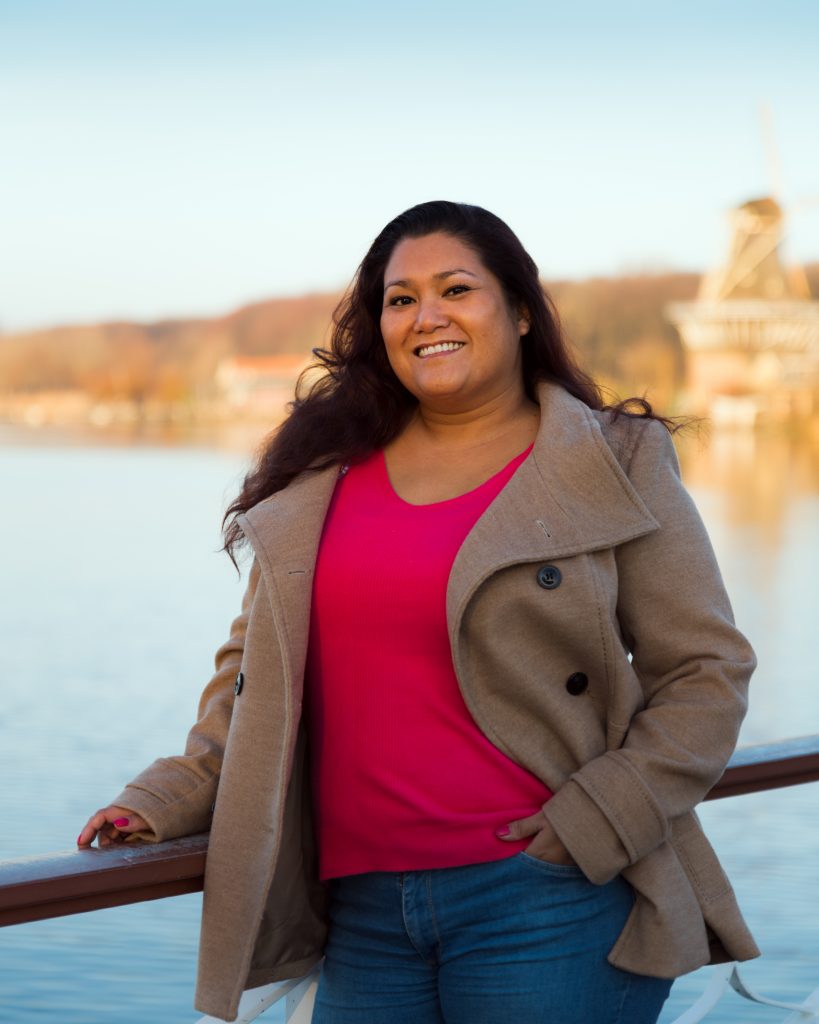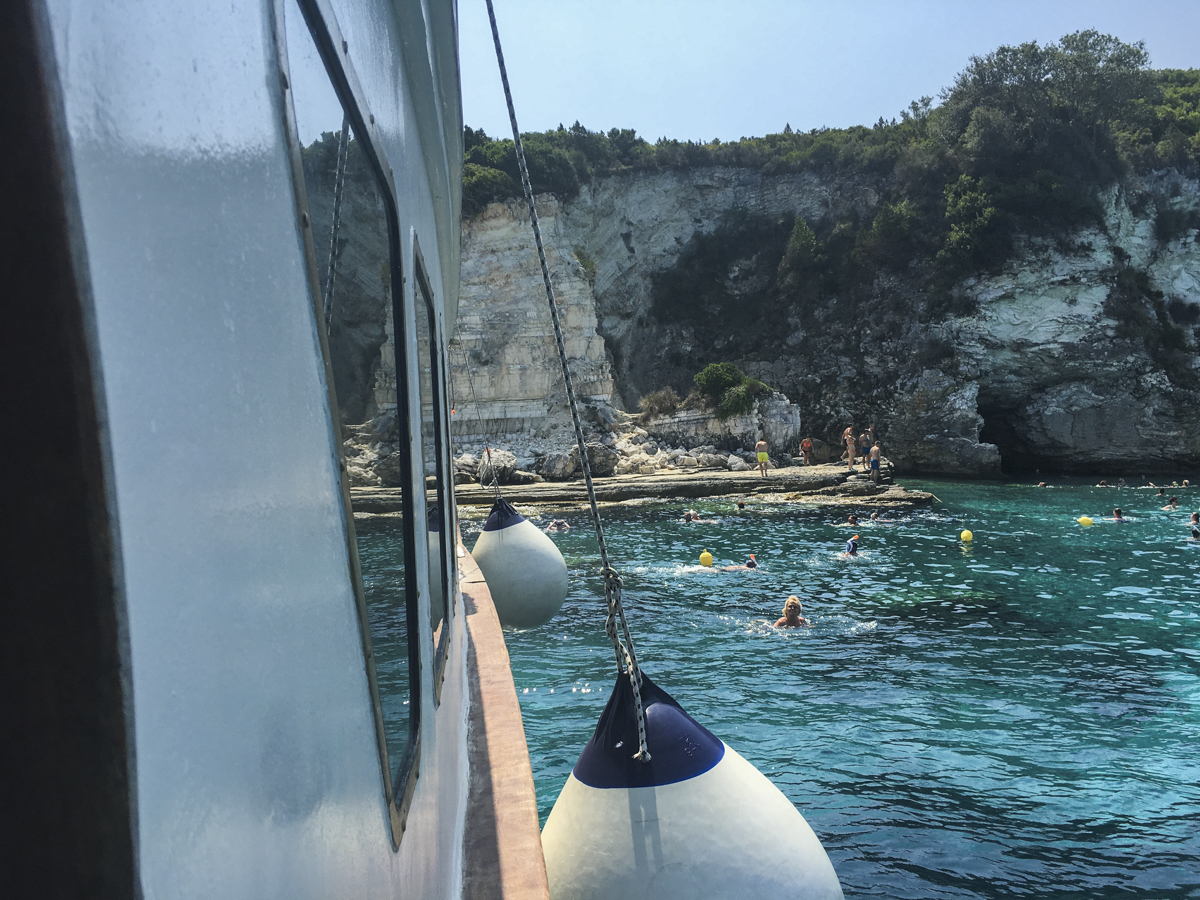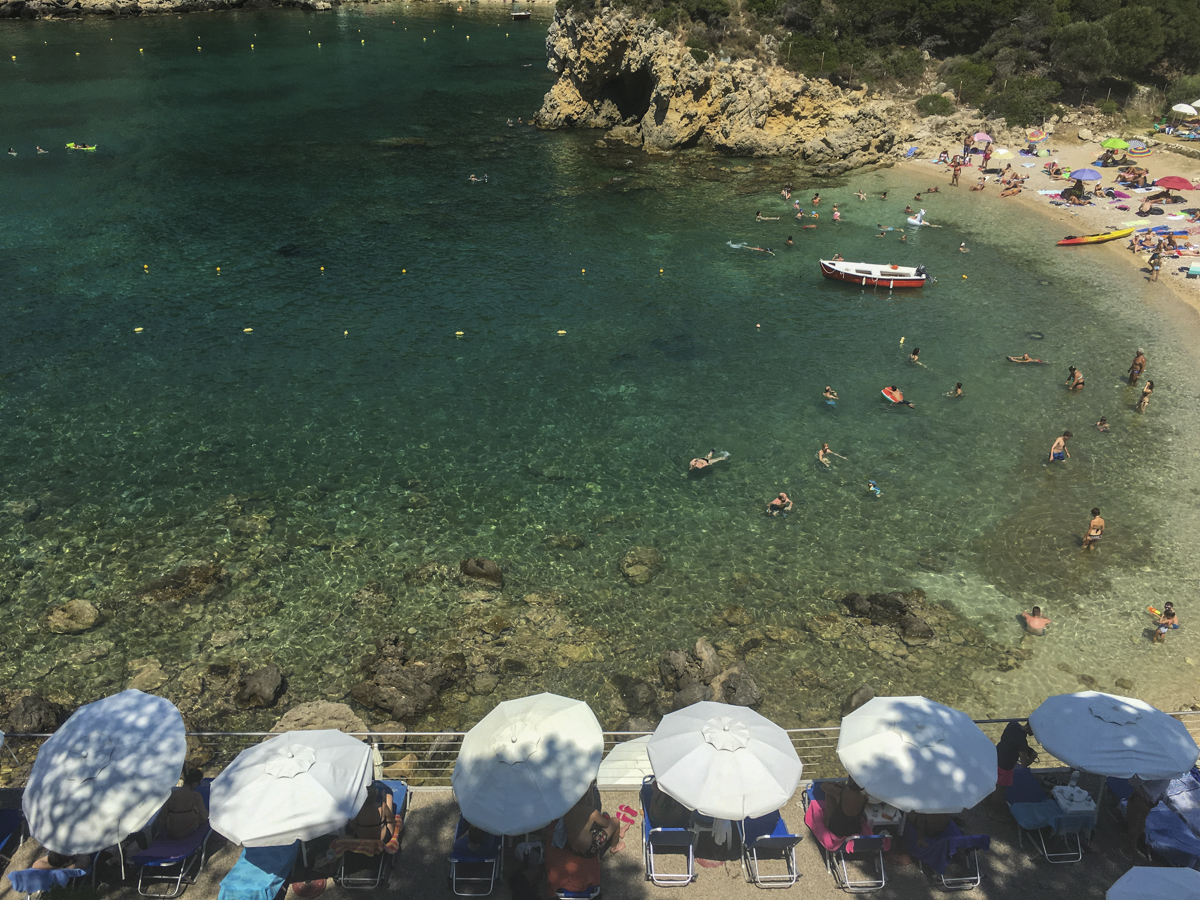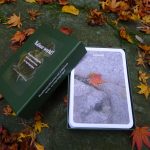Photo by Kami Rice
INTERVIEW BY MIRTHE SMEETS
Mirthe Smeets brings us a conversation with a passionate young tourism professional who helps us consider how our tourism can avoid consuming the very jewels we set out to enjoy and marvel over.

Photo by Jor Évora, Rotterdam-based photographer.
Your master’s thesis has the interesting title: “Take only pictures, leave only bubbles.” You did a case study of the impact of marine-based tourism on the reef ecosystems of Playa del Carmen, Mexico. Why did you choose this subject, and what was the conclusion of your research?
“Take only pictures, leave only bubbles” refers to a term that is often used in the dive industry. As a dive instructor, we teach our students that we mustn’t touch anything that we see in the oceans, since [doing this] is harmful to the natural environment and aquatic life, and can also be harmful for divers who engage in “depreciative behavior.”
As a tourism professional and a dive instructor, I noticed that most research that was done on degradation of reefs and aquatic life, was done from an environmental perspective, and almost none from a tourism perspective. I found this odd, since the tourism industry is the fastest growing industry in the world, and for most countries is one of the largest income generators. I felt that as a tourism professional, we have to come up with viable solutions for the environmental problems that (mass) tourism is causing. My thesis was written to advise tourism policy makers and tour operators and to create awareness. I used different frameworks to build my advice on [for Playa del Carmen].
1. At the national level the federal government could use the green economy approach for further tourism development and strategic planning. This approach may improve human well being and social equity, while reducing environmental risk and ecological scarcities.
2. At the state level the use of the ecosystem-based marine spatial management approach could be implemented. This approach recognizes the full array of interactions within an ecosystem, including human use.
3. At the destination level it would be wise to establish a Destination Management Organization. This could either be a regional Destination Management Organization for the whole of the Riviera Maya, or it could be a local Destination Management Organization for Playa del Carmen. The Destination Management Organization would be responsible for tourism management and governance, and could be a strategic leader in developing the destination in a sustainable way.
You sound like an idealist, someone who really wants to contribute and do something about a better, more sustainable society. Why is that? Have you always been an idealist?
Maybe I seem like an idealist to some and maybe I am a little of an idealist. However, I would more describe myself as a dreamer and a realist. Over the past couple of years, I have changed quite a lot, not only in my personal beliefs but also my political views have changed. I have lived in several countries over the world and have shared experiences with many people from different ethnicities, who all have different religions and belief systems. I believe we should honor each person as an individual for their uniqueness. Moreover, I have seen different landscapes and so many animals both on land and in the different seas that I have dived. These are also all unique and beautiful in their own way.
The changes that I see in this world, especially in our environmental surroundings, but also in the displacement of locals due to tourism, make me rather sad. I grew up in a very Western world with Western beliefs of how to better the world. Yet I find that many of the beliefs that the Western world holds are very backward.
Without going into great detail, I would like to explain this a little. In tourism, and as a tourist, we say: “Oh, that destination is wonderful, but the people there are not as developed in their ways or technologies as we are back home.” However, at the same time the tourist would like the destination that they visit to stay “authentic.” In other words, we would like to visit an “authentic” village and see how they live, while at the same time we have this dislike towards them for not having the same beliefs or the same technology as we do. This to me is so odd. I think my mind just works differently to those of the masses.
Another example is that we enjoy pristine white beaches and to dive and snorkel the untouched reefs. However, we humans are the only ones causing degradation to these ecosystems. It is by [humankind’s] hand that beaches, mangroves, and reef ecosystems are being polluted and destroyed.
When we say we love something, I believe we should nurture it, [but] instead we ruin it. I have seen, and unfortunately still see, that economic growth always takes precedence over environmental sustainability.
What kind of company is Mariposa Leisure Consultancy?
Mariposa Leisure Consultancy is the company which I started last August. I organize trips for both divers and non-divers. I take my guests to places that I have visited or lived and show them what I think would be a good experience. For example, I took a group to Quintana Roo, Mexico, last October and November. We stayed at a wonderful villa that is owned by a friend of mine and dived with my friends who live and work in Playa del Carmen as dive instructors. I [also] took [my guests] to places that are special to me. The next trip that I am organizing is to Labuan Bajo, in Indonesia. This trip we will dive with friends of mine who have just started their own dive school there, and we are staying in a villa. The reason why I want to stay in a villa with the group is so that guests feel free to do their own things, but also feel welcome to join the rest of the group.
In the future, I would love to do consultancy work through my company for either companies or (local) governments and advise them in how we can work towards a world where the tourism industry is more holistic than the tourism industry that exists nowadays. I hope not only to educate locals in living in a more sustainable way, but I also hope to educate my guests and other travelers to become more aware of their impact on nature and local communities.
Ultimately, I hope that in working with (local) governments, companies in the tourism industry, and local communities, our joint work will mitigate the effects of mass tourism on destinations so that we can move towards a more environmentally friendly, economically sustainable form of tourism, where carrying capacity of the local population, the tourists, and the environment are kept in mind when new policy is being made.
What kind of travels can be booked at the moment at Mariposa Leisure Company?
As I mentioned before, I am organizing a trip to Labuan Bajo, Indonesia, for October 2019 and will be planning a trip to the Bahamas in February 2020, where we will be swimming with pigs in Exuma and diving with sharks in Bimini among other places. I want to give people the feeling that they are traveling somewhat off the beaten track, but also feel that they have learned during their trip. Learning can be any form that you want it to be, whether it be learning about others, other cultures, learning to be more aware of their impact as a tourist when at a destination, [their impact on] its people and environment. I want them to feel as though this is a trip that they wouldn’t have made if they were “just tourists.” People who are interested in the trips that I design can contact me at mariposa.leisure@gmail.com.
What kind of world do you wish the world would be, if you could change it, if you could design this world?
My dream would be to live in a world where people are less judgmental towards one another and where we understand each other better through compassion and empathy. A world where we care not only about and for ourselves, but a world where we care for each other and truly value our surroundings and the people that we have in our lives.

Mirthe Smeets works as an editor and journalist and lives in Maastricht in the south of the Netherlands. She lived in France for some time and loves to meet people from all around the world. Sharing beautiful stories and cultural projects is one of her passions and is why she enjoys contributing to Anthrow Circus. Have any nice ideas? You can contact her at mirthesmeets@gmail.com.




